

Survey Reveals 70% of Cancer Survivors Skipped Regular Body Checks
Introduction
A survey conducted by Cellcloud, a Tokyo-based company, highlights a startling reality: a significant number of cancer survivors from the business sector have neglected regular body cancer screenings. This article delves into the findings and discusses the implications for future health management among professionals in high-pressure roles.
Survey Overview
The survey targeted 110 male business professionals aged over 40 who had experienced cancer while holding executive or managerial positions. Conducted using IDEATECH's research data marketing tool, the survey aimed to understand the relationship between cancer screening practices and regret among these individuals.
Key Findings
Lack of Regular Screenings
Surprisingly, 40.1% of the respondents had never undergone a comprehensive body cancer screening before their diagnosis. Only 36.3% reported attending screenings at least once every two years. The survey also revealed that many individuals felt secure enough with routine health check-ups and lacked symptoms that might indicate the need for more intensive testing.
Reasons for Skipping Screenings
When asked why they did not participate in regular comprehensive screenings, 40% cited that routine health examinations were sufficient, while 30% indicated that they did not perceive a need due to the absence of noticeable symptoms. This reflects a common misconception about cancer screening, where routine checks are often considered adequate.
Awareness of Advanced Testing
A staggering 82.8% of those unaware of the Micro CTC test expressed regret, stating they would have liked to have undergone such testing if they had known about it. The Micro CTC test is a cutting-edge procedure that captures circulating cancer cells from the bloodstream, providing an accurate risk assessment with just a five-minute blood draw.
Reflections on Regrets
When reflecting on their cancer diagnosis, 26.4% of respondents regretted not participating regularly in cancer screenings. Additionally, 43.6% mentioned the burden placed on their families through their diagnosis. These regrets highlight the potential impact that earlier and more regular screenings could have had on their health journeys.
Barriers to Screening
Among participants who had not undergone regular screenings, the main reasons cited included the feeling that routine health checks were enough (40%), lack of symptoms causing perceived irrelevance (30%), and challenges in finding time due to busy work schedules (22.9%). These barriers underscore the need for interventions that promote efficient screening tools that fit into busy lives.
The Impact of Routine Check-Ups
Interestingly, when evaluating their experiences, over half of the respondents (54.5%) acknowledged that regular screenings are vital for early cancer detection. They emphasized the importance of noticing changes in health and following up diligently with healthcare professionals.
Conclusion
The survey results indicate a significant gap in cancer screening awareness and practice among busy professionals. With many considering routine health examinations sufficient, the opportunity for advanced screenings like the Micro CTC test could greatly enhance early cancer detection efforts. Cellcloud aims to raise awareness and advocate for the use of less invasive and time-consuming screening methods that could help mitigate the fears many have regarding cancer—addressing both the anxiety and physical struggles linked to this pervasive disease.
In conclusion, to combat the fears and challenges posed by cancer, it is crucial for individuals, especially in demanding professional roles, to prioritize their health by embracing comprehensive cancer screenings.
For more information on the Micro CTC test and its potential benefits, visit Cellcloud's official site.
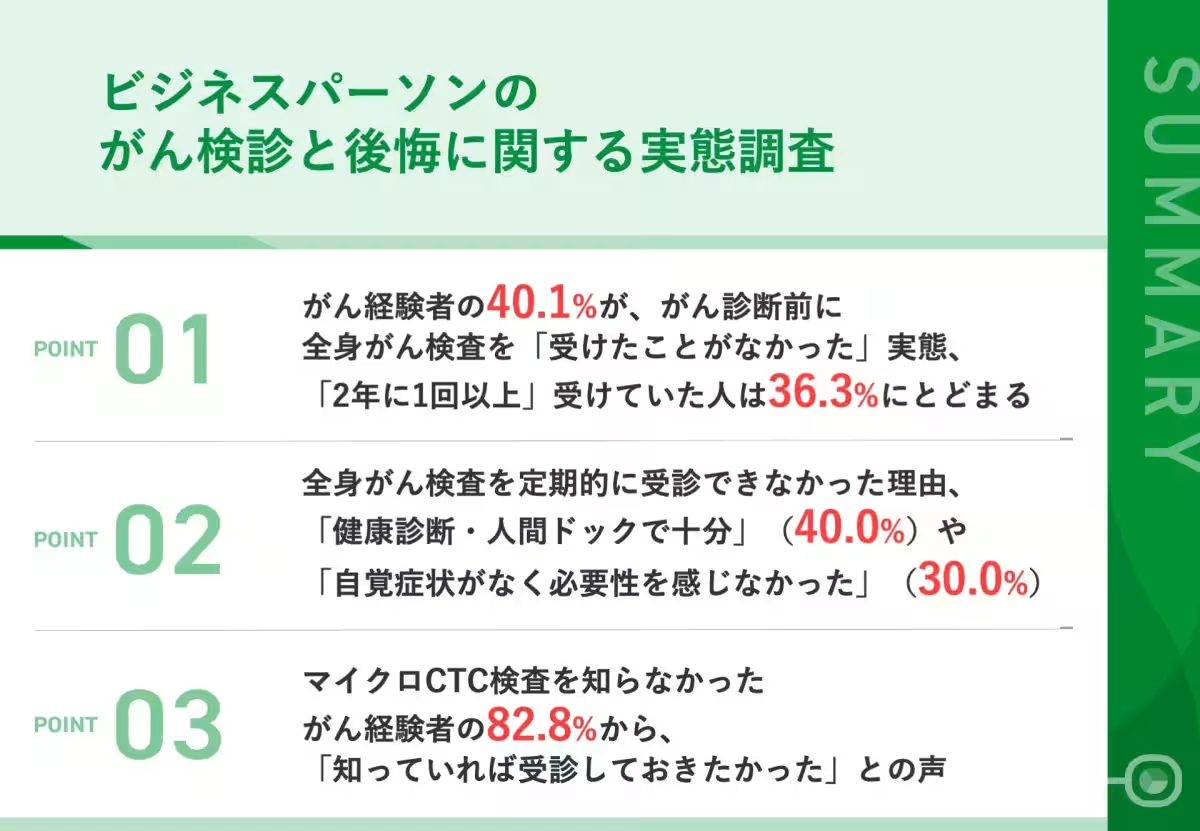
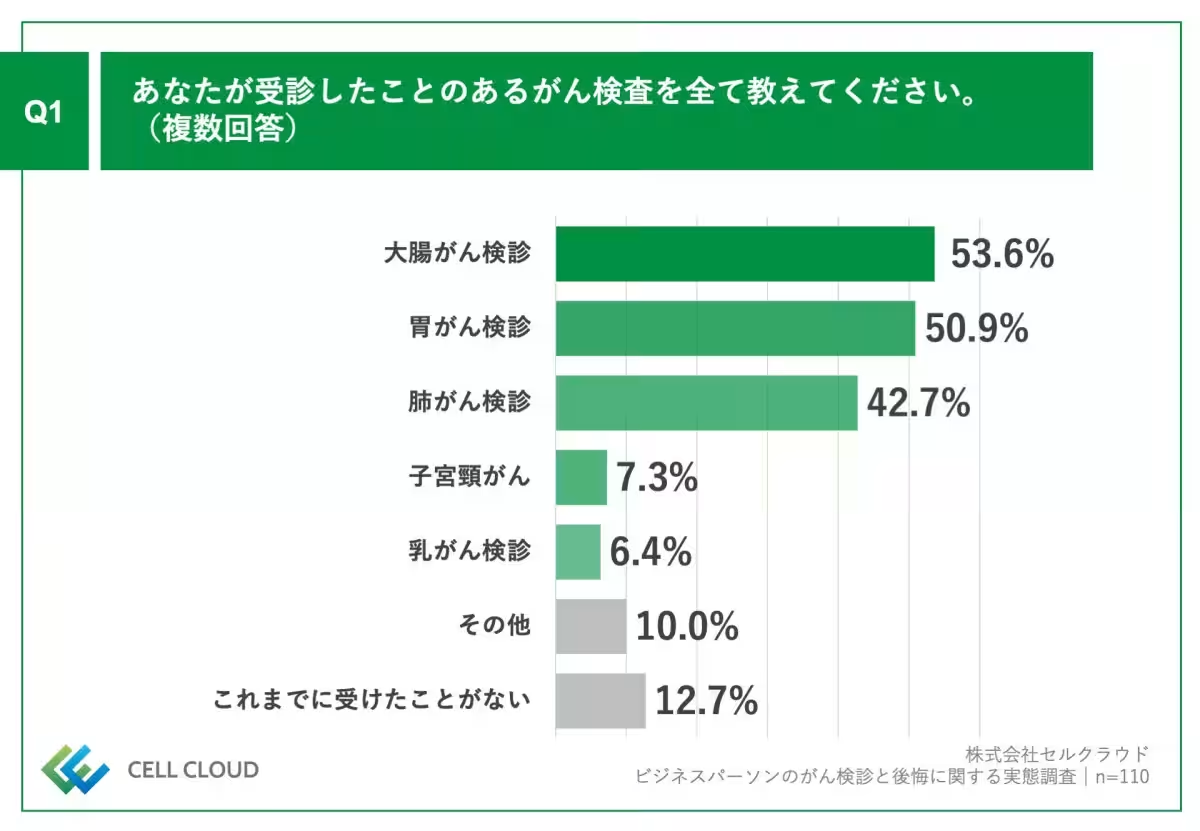
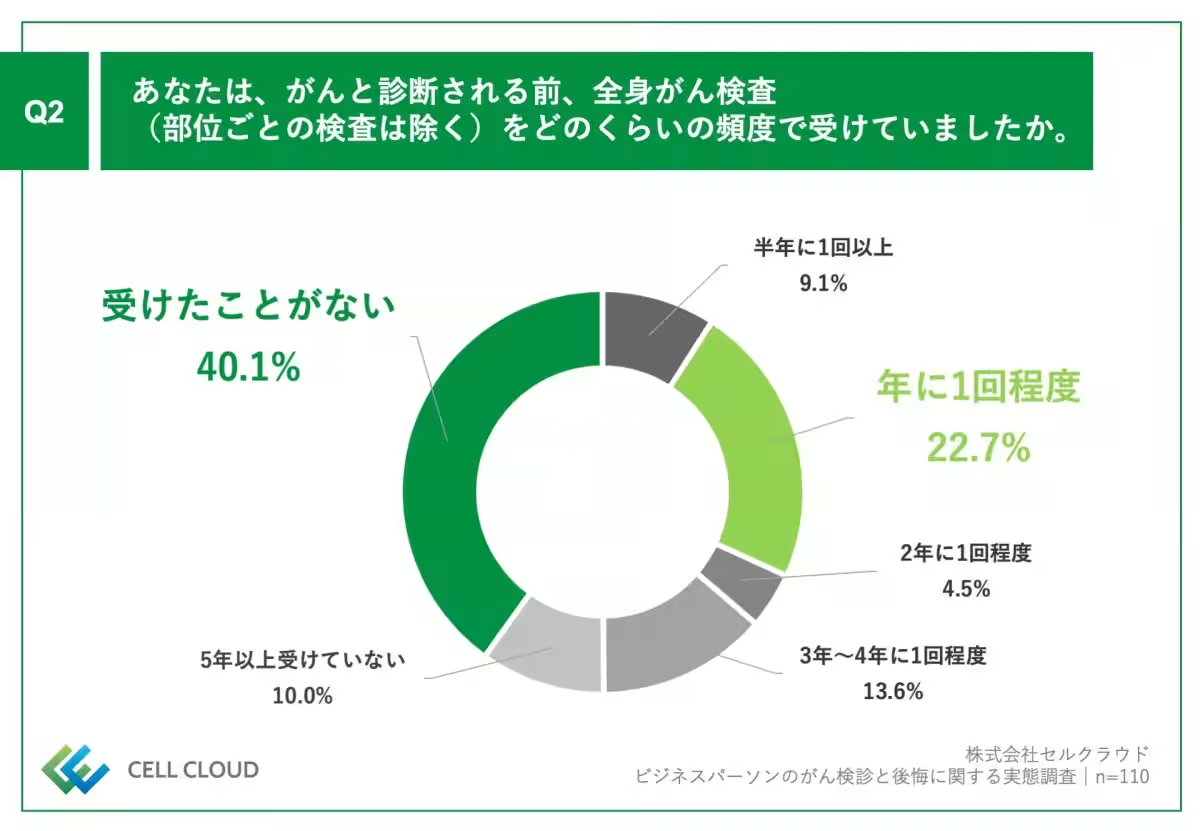
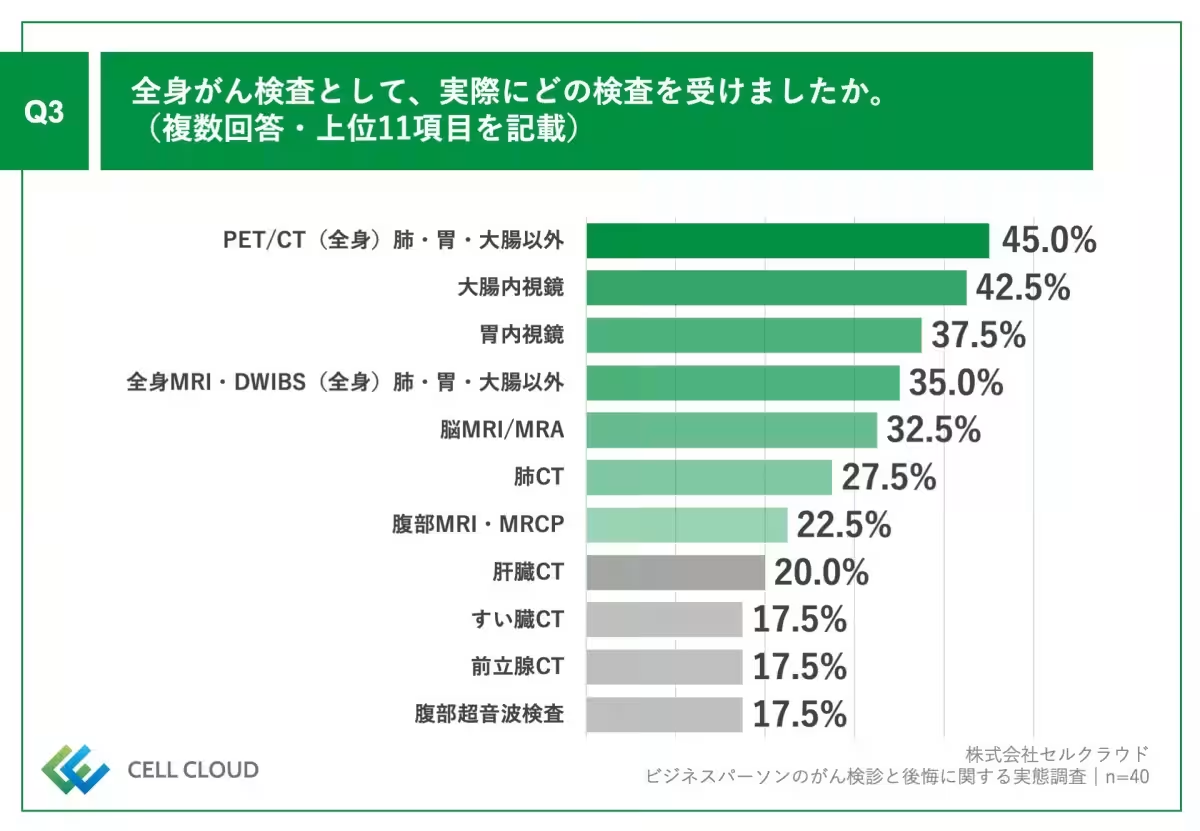
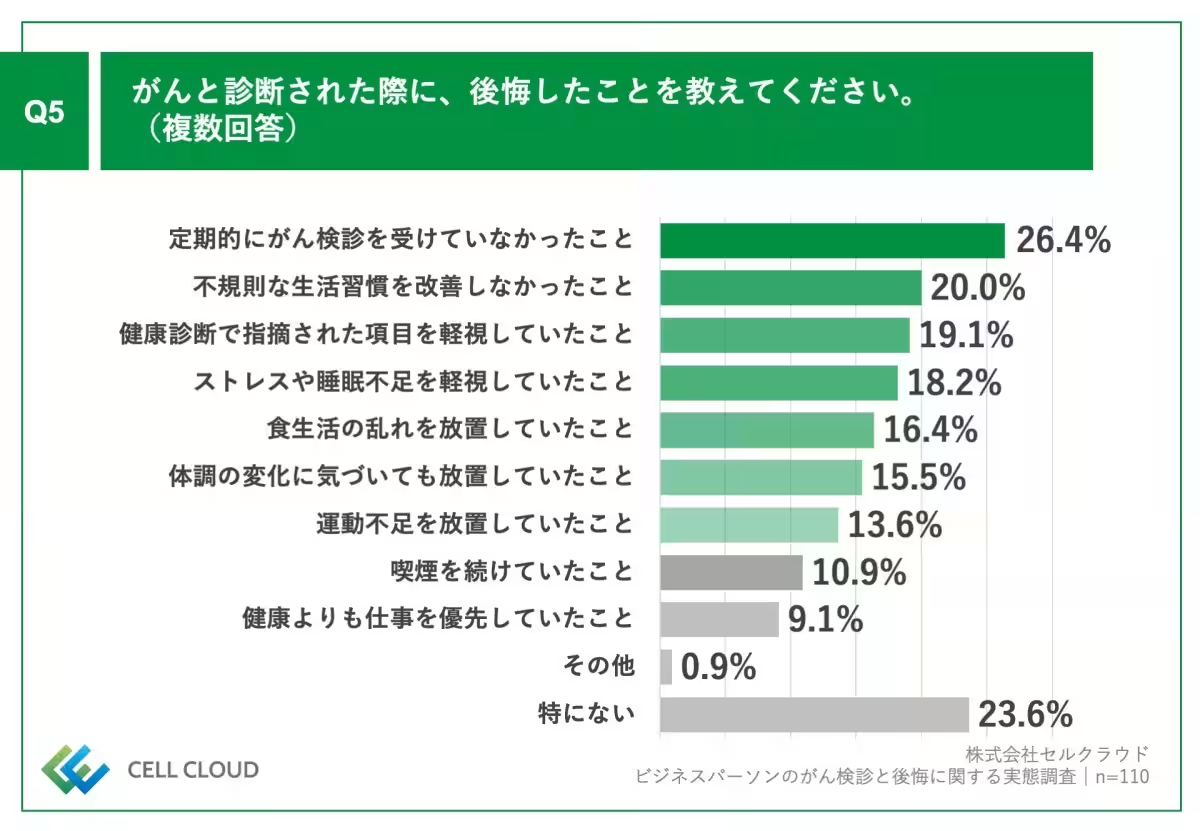
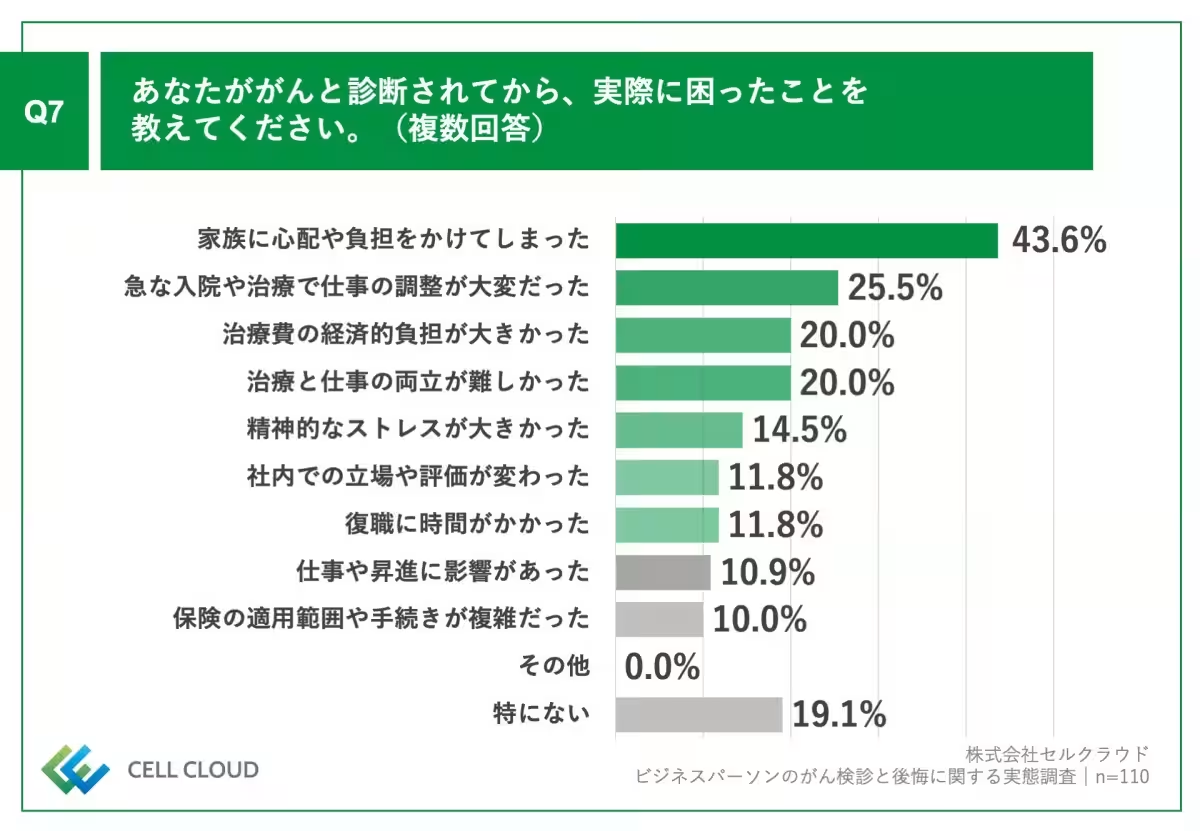
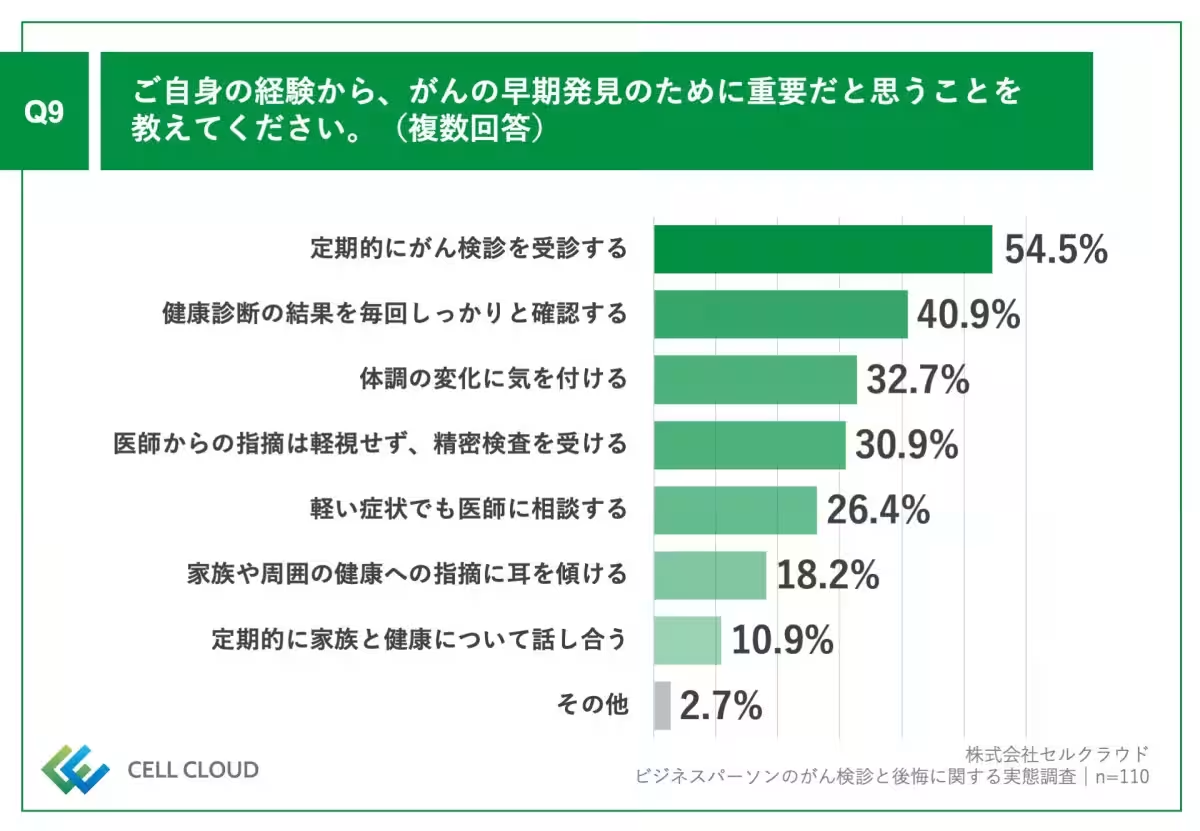
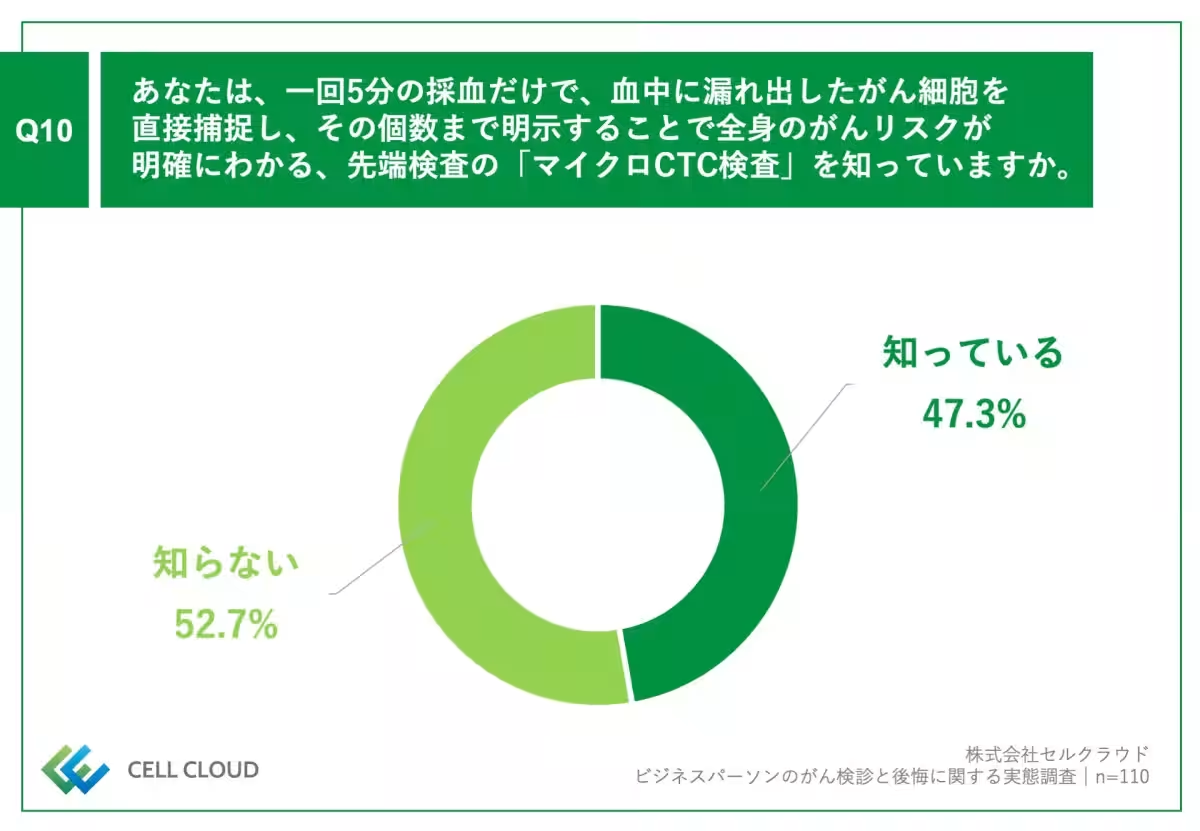
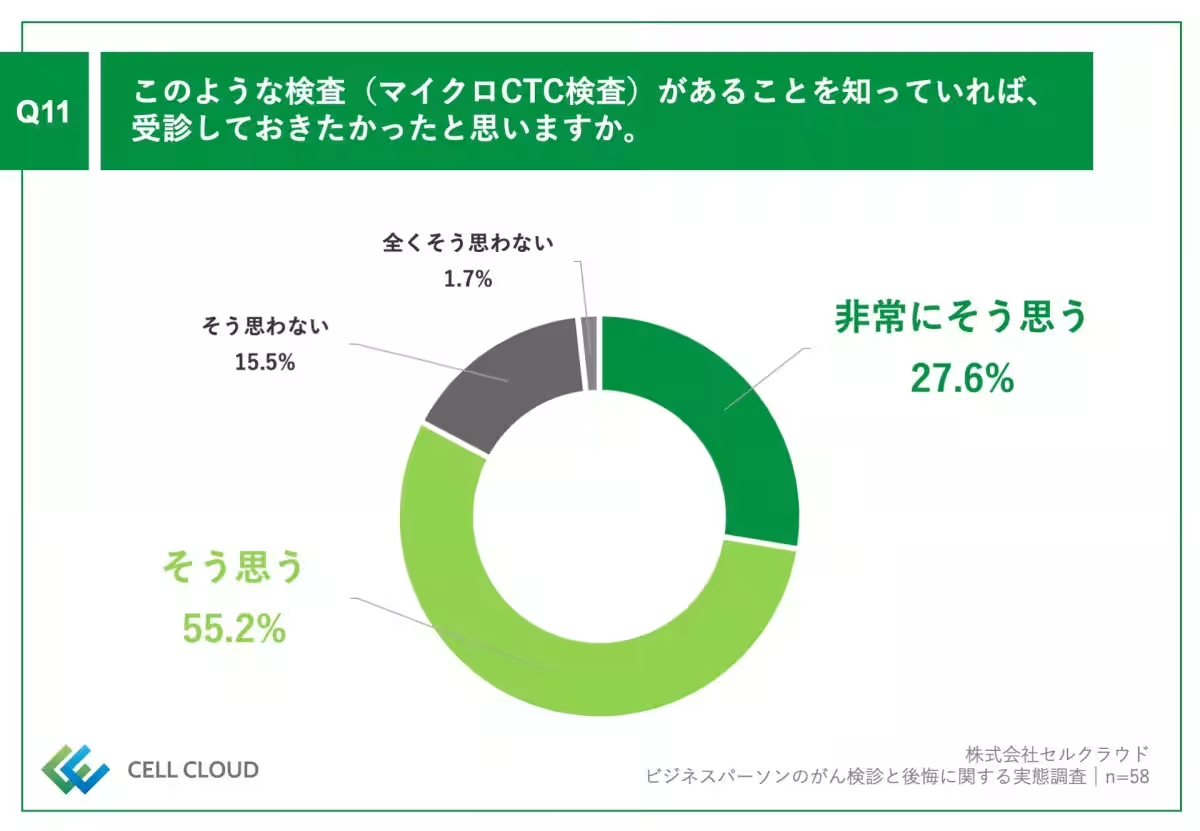

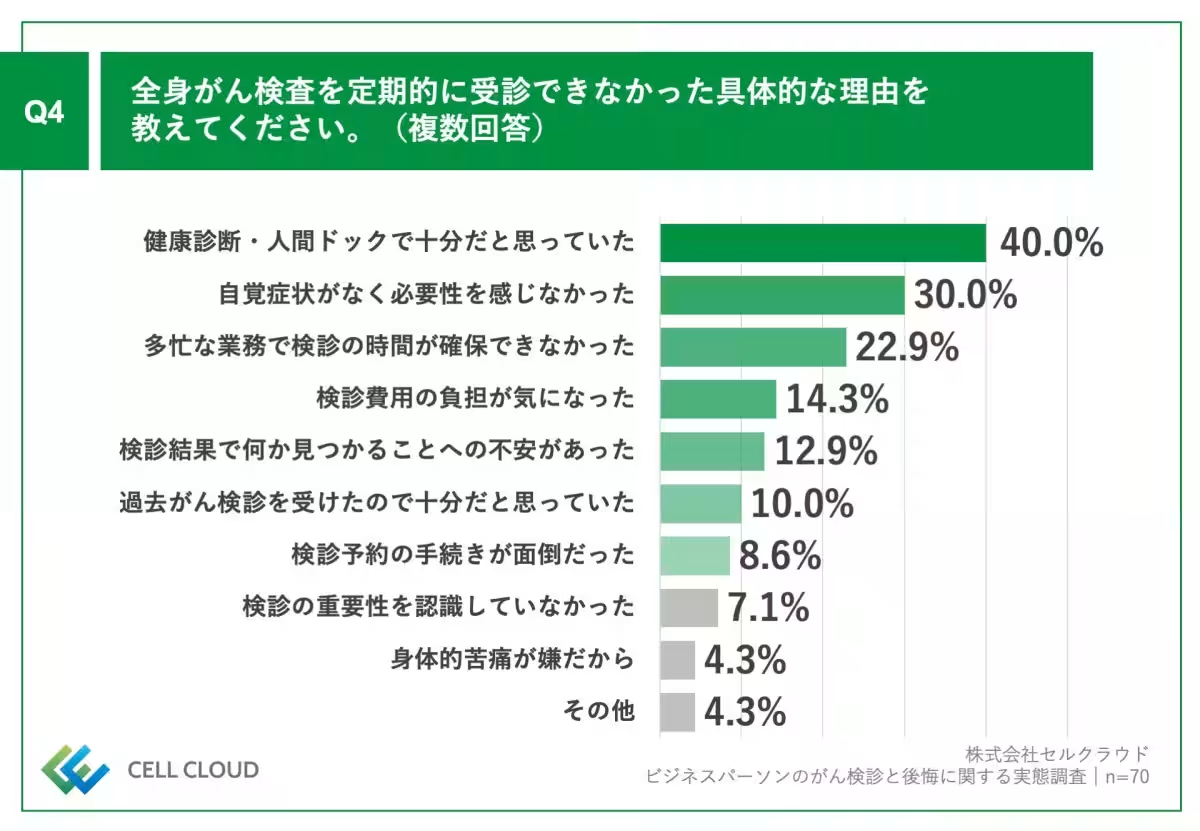
Topics Health)










【About Using Articles】
You can freely use the title and article content by linking to the page where the article is posted.
※ Images cannot be used.
【About Links】
Links are free to use.